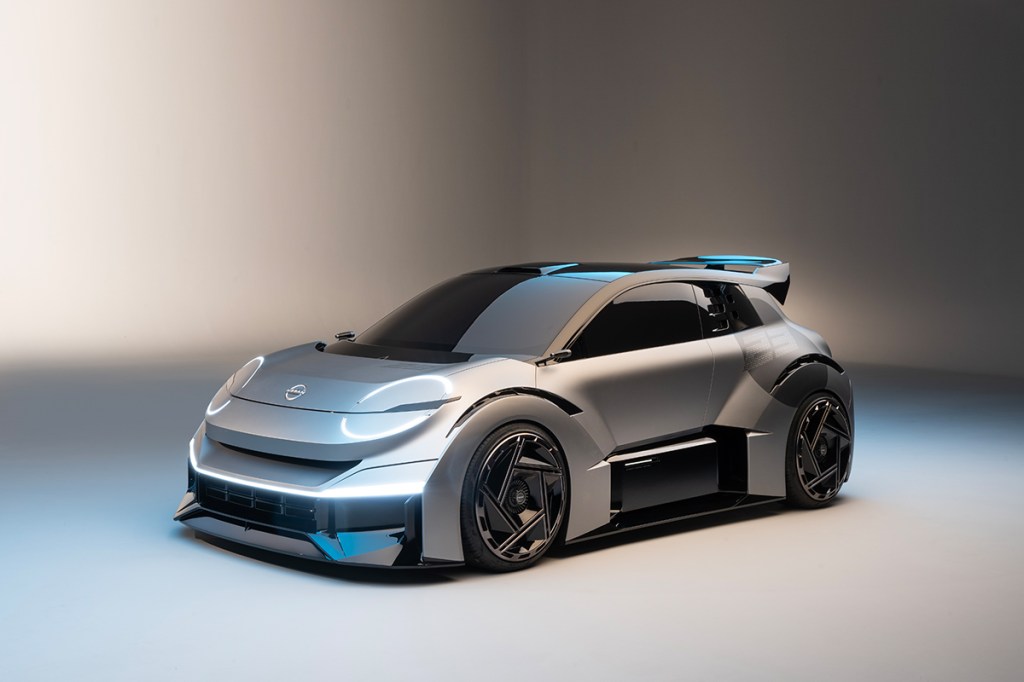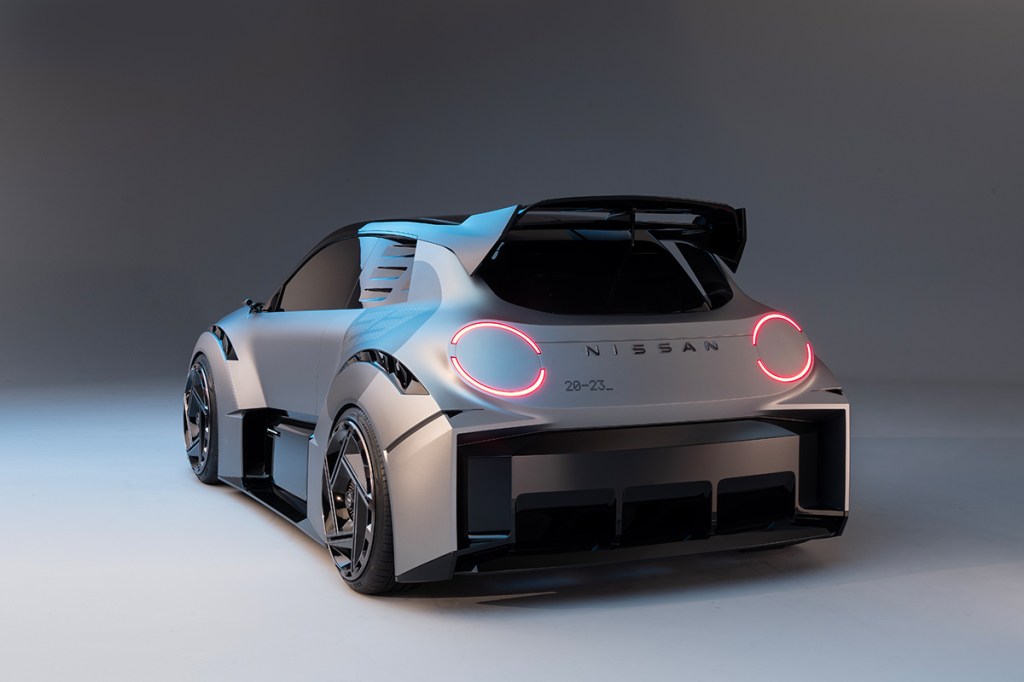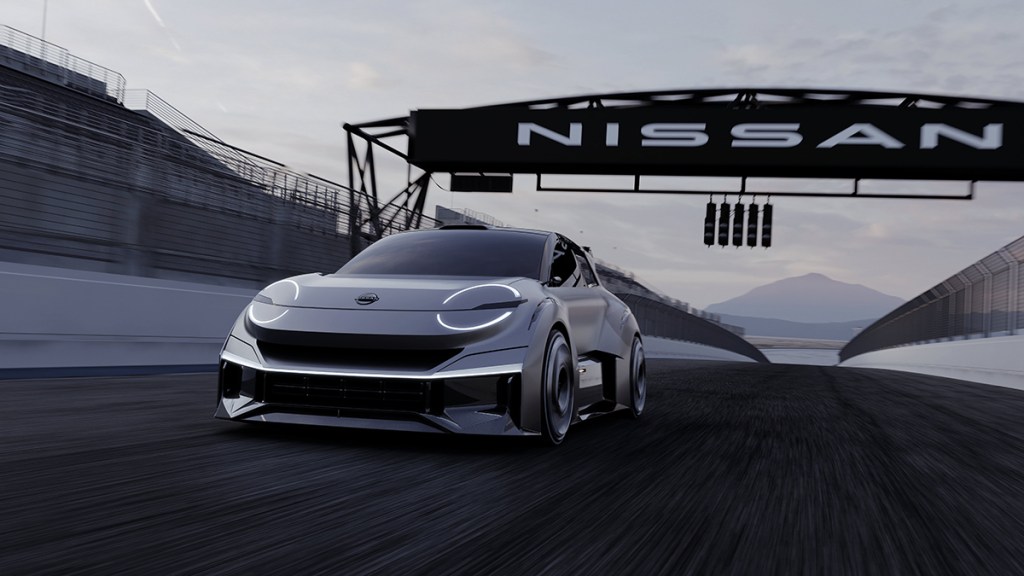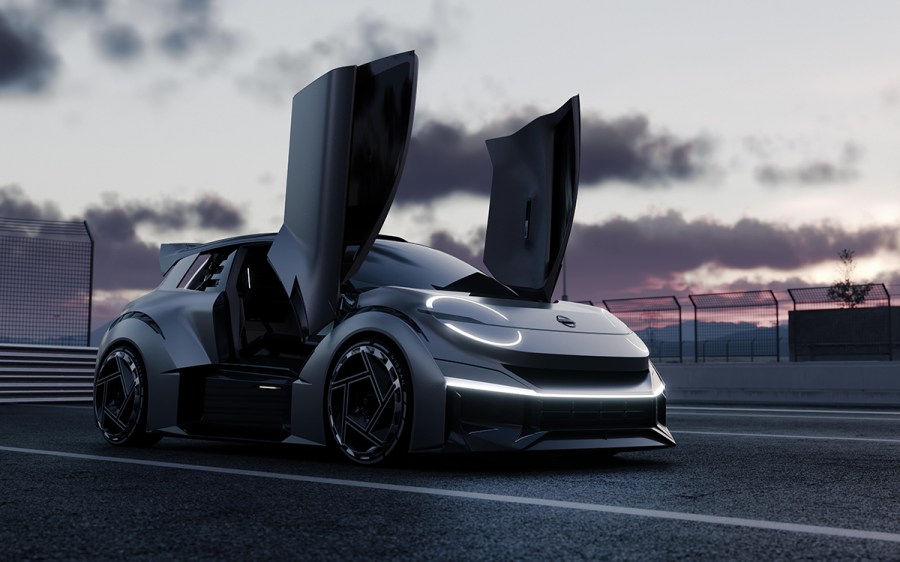When it comes to building concept cars, there are only a handful of manufacturers who let their designers run wild. The new Nissan 20-23 EV concept is one such example, and we love it!
Before we hear mutterings of “urgh, it’s electric”, let’s get one thing straight. This is cool. Look at it! Those Lamborghini-style doors takes us back to the car modifications of the early-00s…
For once, a global car manufacturer has allowed its designers to run wild with their imagination and build something truly out there. We saw glimpses of this recently with the mad Alpine hot hatch, and now Nissan wants in on the fun.

For this project, Nissan Design Europe is celebrating 20 years of having its head office located in London, while Nissan’s European R&D team is marking its 35th anniversary. As a result, the UK designers were allowed to build a wild concept that ultimately leads towards the revealing of the new Nissan Micra in the coming months. The new Micra will sit on the same platform as the all-new Renault, as well as that wild Alpine we mentioned earlier.
The design brief for the new Nissan 20-23 EV concept was simple, build a fun electric city car that you’d like to drive every day. So, what did the team do? They built the wildest, most offensive 3-door supermini they could possibly dream up.
There are no details on what powers the 20-23, or whether its FWD, RWD or AWD, all we do know is that it highlights the vision of Nissan’s design studio. Does it point towards what the Nissan Micra will look like? Probably not… We can dream, though. Who’d have thought we’d be dreaming about a Lamborghini-doored, widebody Micra in 2023?

Nissan 2030 electrification goal
What we do know is that this concept car is all in aid of Nissan’s global ambition of introducing 27 electrified vehicles, 19 of which are solely electric, by 2030. A date that did mark the legal end of all ICE-powered vehicles in the UK. However, that has recently been amended, with the ban on the sale of ICE cars arriving in 2035. In that 2030 goal, Nissan also plans to introduce cobalt-free battery technology with the aim of bringing the cost of EV batteries down by 65% in 2028.





